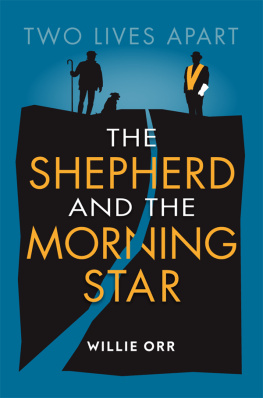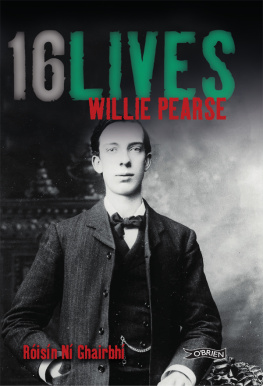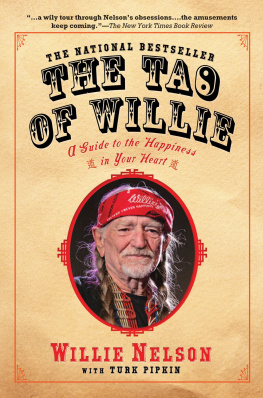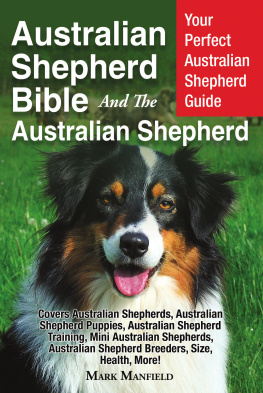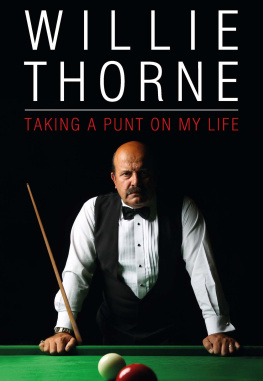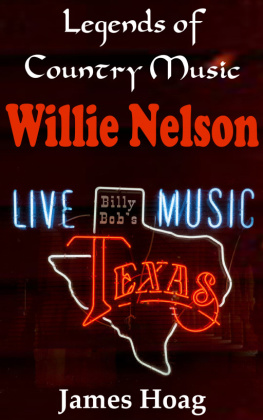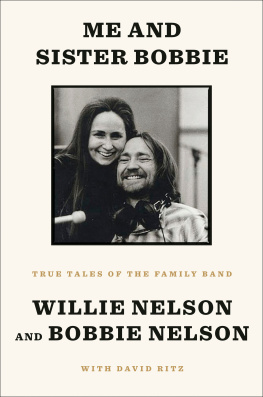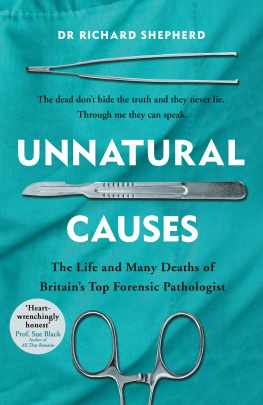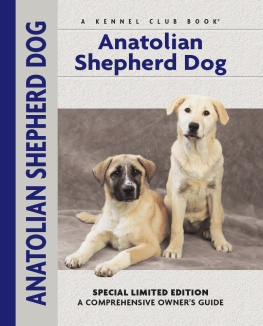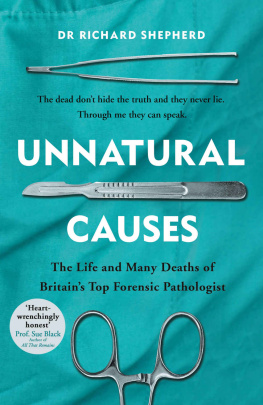Contents
Guide
THE SHEPHERD
AND THE
MORNING STAR
Willie Orr was born in 1940 in Northern Ireland. After a public school education, he had a variety of jobs, working for a time in the Belfast shipyards and also as an actor in theatres throughout Ireland. He then moved to Scotland and spent time in the Iona Community, before becoming a shepherd and later a teacher and a counsellor. A prolific writer of newspaper articles, poetry, plays and fiction, his previously published books are Deer Forests, Landlords and Crofters (1982) and Discovering Argyll, Mull and Iona (1990). He now lives near Oban in Argyll.
First published in 2019 by Birlinn Ltd
West Newington House
10 Newington Road
Edinburgh
EH9 1QS
www.birlinn.co.uk
Copyright Willie Orr, 2019
The right of Willie Orr to be identified as the author of this work has been asserted by him in accordance with the Copyright, Design and Patent Act 1988.
All rights reserved. No part of this publication may be reproduced, stored, or transmitted in any form, or by any means, electronic, photocopying, recording or otherwise, without the express written permission of the publishers.
ISBN: 978 1 78027 588 8
British Library Cataloguing in Publication Data A catalogue record for this book is available from the British Library
Typeset by Hewer Text UK Ltd, Edinburgh Printed and bound in Great Britain by Clays Ltd, Elcograf S.p.A
Contents
Illustrations
To Justice for the Forgotten
Dublin and Monaghan
Two Conversations
I am cutting grass when he appears round the corner of the house. Two sparks of recognition flash in my head. First, its my brother instantly dismissed as I know hes in Canada. Secondly, my father again dismissed as he is dead. Yet the resemblance is uncanny.
Are you Willie? he asks.
Yes.
Im your fathers illegitimate son.
Good God!
No. Just James, Im afraid.
There is no doubt about it. He is more like my father than any of the family the same impenetrable brown eyes, the same restless eyebrows, the same coal-black hair swept back elegantly over the ears.
I am seventy-three and he, I guess, is about sixty.

The phone rang one morning in August 1974.
Hello. Is that Willie?
A very well-spoken English lady.
It is.
Its Julia. You may remember that we met earlier this year.
Of course I remembered. My father had been visiting us in the West Highlands and had left rather quickly, claiming the need to attend a meeting. After he left, my wife and I decided to take the children for a day out in the car and, as we crossed the road to reach the car, another vehicle came towards us and stopped suddenly some distance away. I thought it was his car but, not sure, hurried the five feral children into the back of ours. His car started again and stopped behind us. Out of the passenger door emerged an extremely elegant young lady in a beige camel-hair suit.
This is Mrs Stone, he said, Julia Stone.
Could you not have come up a more convincing name? I thought.
That must have been more than a year before the phone call.
Yes, Julia. I remember.
Do you know where your father is?
No, Im sorry. Have you tried the houseboat?
Yes. Hes not there.
Perhaps hes in Ireland in the constituency.
No. Someone has tried there. Have you no idea?
No, Julia. We really dont keep in touch. Christmas, birthdays, that kind of thing. The last visit was the first for years. I really cant help.
You must have some idea. Its very important.
There was an urgency, if not panic, in her voice.
Id like to help but theres nothing I can do.
He should be here. There are some very influential people here John Gorst and other MPs. Were in Caxton Hall and were about to get married but he hasnt turned up.
I see. I think its just as well. Im afraid he is still married to my mother.
What rubbish! What a dreadful thing to say. Hes divorced.
No, Julia. Youd better check it out.
The beginning of the end.
1
The bonfire spews flames and smoke into the night sky like the dragons breath in my bedtime book. It roars and its heat burns my bare knees but Im too excited to move back. Flames coil round the man in the middle of the fire, scorching his clothes and melting the peak of his hat. The flames light the faces of the people round the fire. Their eyes glisten and the teeth in their smiles glow like coals. They cheer as the man bursts into flames, his armband with the swastika falling from his arm. I look up at my grandmother who is clapping her hands and I wonder why she is crying and laughing at the same time. My mother is in the city having a baby and my father is still away at the war.
May 1945. The war was over. There were other bonfires all along the coast of Ulster. I could see them flickering on the sea. They were burning Hitler too. There would be no more sirens. That pleased me more than anything as I was afraid of that wail in the night and the drone of the German bombers, monstrous and malevolent in England. I had heard the distant whine of the bombs and I had seen houses burst open by the blast. I knew what could happen. When we heard the siren we used to scuttle downstairs, my mother carrying my sister, and I could see the fear in her eyes and in the white dimples at the corner of her mouth. It made me afraid to look at her. Sometimes, when the bombs were near, she grabbed my arm and hurried me along, her fingers trembling. Then I wanted to cry but I had been taught to be brave like a soldier, like my father.
He will be home soon, she used to say. I did not believe her because she said it so often and he seldom appeared.
Tonight I open my grandfathers diary, expecting to find a page welcoming the peace and mentioning my fathers return to Ireland. The entry is brief.
Mon 7th May Slight showers. Working in garden. News this evening that the great European war has ended.
A month later it records briefly that my father returned on leave and adds, Slight showers again.
Im tempted to say that I was confused by his return, that I was shy, that I was resentful of the intrusion or that I was pleased to see him, but the truth is that I recall only two emotions. He brought home a red metal toy crane with green winding string and a weighted hook. I was delighted with that. He said it came from Germany. In the evening I watched him from an upstairs window. He was down on the shore, kneeling on the ribbed sand, building little dams with his hands. He was completely alone in the dusk. I remember a feeling of sorrow as if I sensed his solitude, his need to turn away from us. Of course the memory could be tainted, for I have nursed it as a part of my portrait of him, the man who became leader of the Ulster Unionists, the Imperial Grand Master of the Orange Order, a public figure engulfed in media attention. His urge to find peace, to relish the tranquillity of a trout stream or the silence on the shores of Lough Gill, diminished as he ascended and, as that interest faded, I lost the only thing we shared.
I was nearly five on VE day and he has been dead for twenty years. I cant say that I knew him, for he spent most of his time away from us. I visited him in hospital when he was dying. I found an old man slumped in a chair, unable to raise his head or shuffle to the toilet. His brown eyes stared at the floor as if there was an abyss at his feet and he drifted in and out of disturbed sleep.

